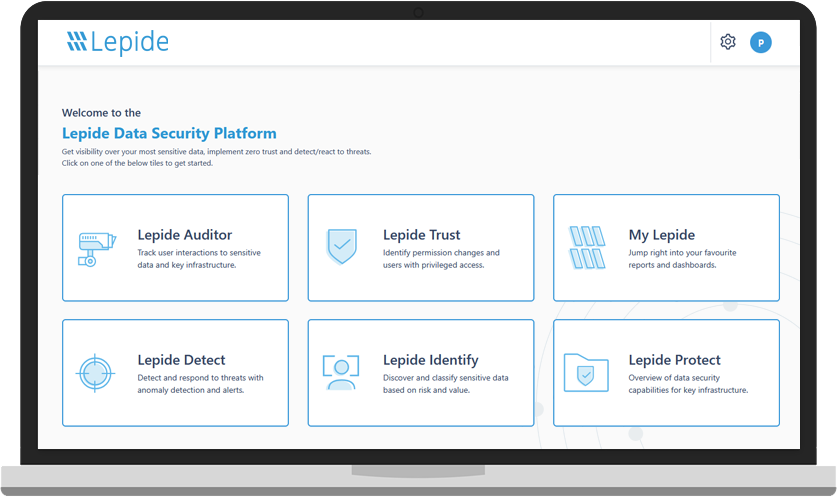SQL Server Auditing Software
The simplest, most cost-effective means of auditing changes and permissions across your SQL Servers
Fill in the rest of the form to
download the 20-day free trial
download the 20-day free trial
x
Audit configuration changes, permission changes and get the answers to the who, what, when and where audit questions.
Decrease the time it takes for you to spot and react to potentially damaging changes in your SQL Server.
Pre-defined reports for common security and compliance concerns, including PCI, HIPAA, GDPR, CCPA, SOX and more.
Overcome the limitations of native SQL Server auditing and get the information you need quickly and easily.
Find out what permissions have been changed, who made the change, from where and when the change was made.
Lepide's SQL Server auditing solution tracks all changes made to SQL Server configurations, permissions, users, logins and more. You can also keep a close eye on the health of your SQL Server using Lepide Data Security Platform.
Lepide SQL Server Auditor provides you with a complete overview of all configuration and permission changes being made to your SQL Server environment through an easy-to-use, graphical user interface. At a glance, you will be able to see all configuration and permission modifications made to SQL Server, the total number of changes per administrator and the total number of changes per source. It even displays those changes over time to make it easier to spot change/event anomalies.

Our predefined comprehensive audit reports help you meet the requirements of regulatory compliance such as FISMA, GLBA, SOX, HIPAA, PCI and GDPR. You can schedule these reports to be sent to multiple recipients periodically via email or by saving at a shared location. These reports can also be delegated to users for viewing on a secured Web Console. Read more...

Over the years, we’ve listened carefully to our customers and have created a library of the most common requirements surrounding SQL server auditing which now forms the basis of our report library. These include reports to show login changes, top users, active databases, changes to objects, changes to tables, replication, roles and jobs to name but a few. As with all of our reports – our whole approach is to show you a single log, for a single change, detailing the who, what, when and where from information. These reports can be saved in PDF, CSV or MHT formats on the disk and scheduled to be delivered in these formats through email or by saving at a shared location. You can also delegate access to view these reports to users on a web-based secured console.

As you know, if you’re reacting to a configuration or permission change that has occurred a while ago, it’s likely you’re already too late to prevent the damage done. In order to truly take advantage from proactive and continuous SQL Server auditing, you need to get real-time or threshold-based updates of these changes as they are taking place. These alerts can delivered as updates to the console, as emails and to the Lepide Mobile App as push-notifications. You can execute your own custom script (to perform any task, such as disabling a user account) upon detecting a critical event, to proactively secure your SQL environment.

Lepide SQL Server Auditor provides you with a simple means of seeing who, what, where and when changes are made to your SQL servers and automatically sends you real-time or threshold-based alerts and detailed reports when needed. It even helps you keep track of the overall health of your SQL Servers.
A guided tour of the Lepide Data Security Platform, your ultimate solution for robust and proactive data and identity protection.
View recording